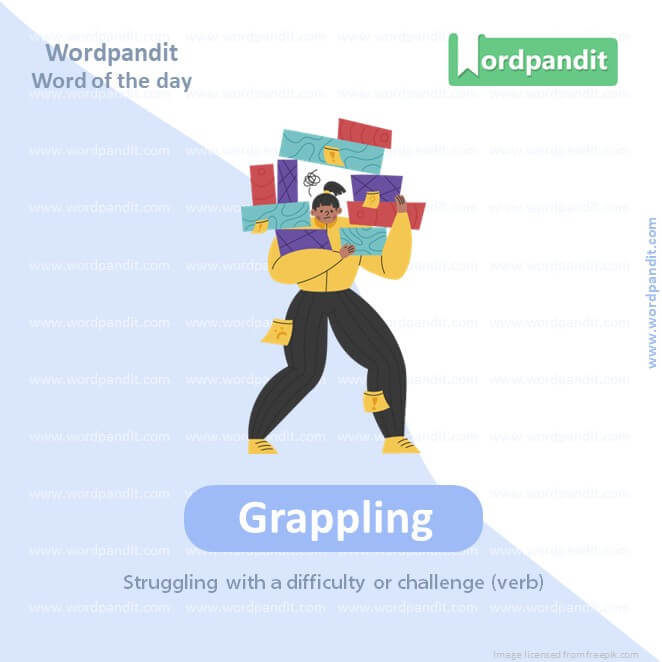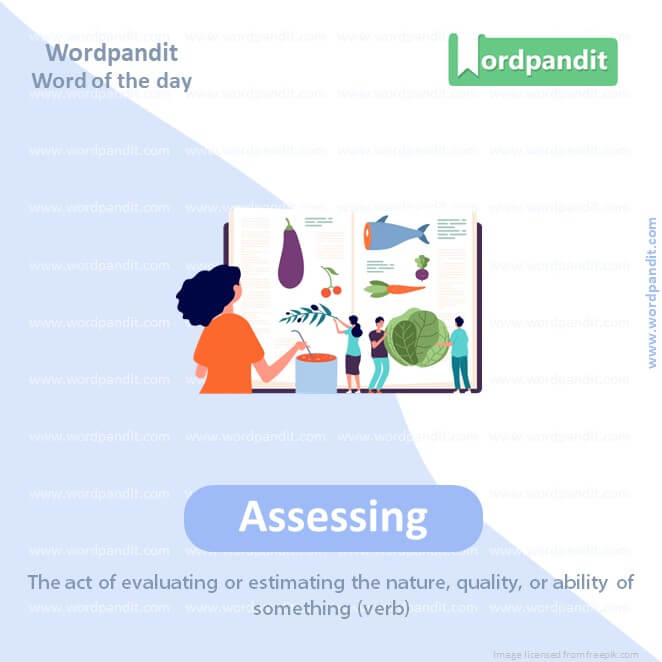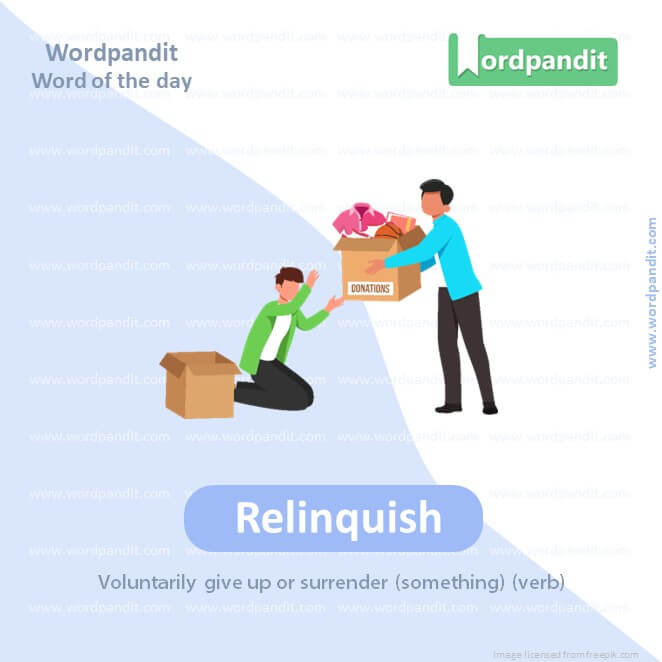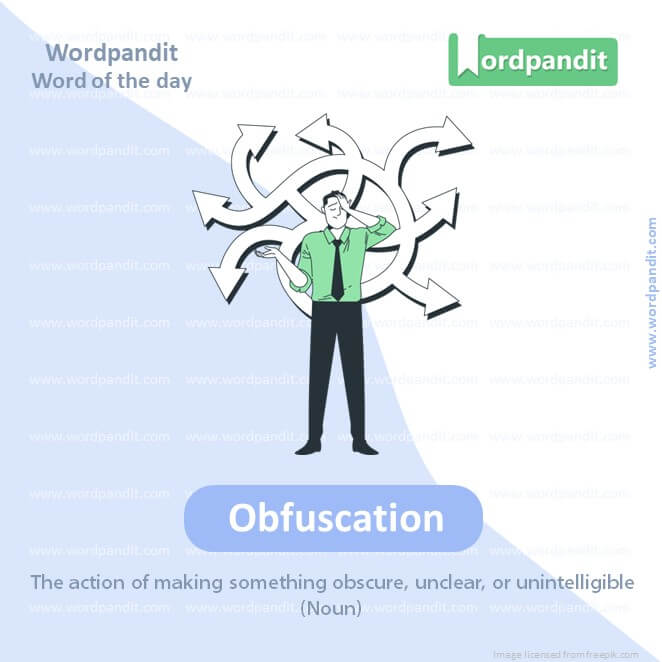Daily Vocabulary Words: List of Daily Used Words
Hi there. Welcome to this special section @ Wordpandit.
Our endeavour here is straightforward: highlighting important daily vocabulary words, you would encounter in The Hindu. This is your repository of commonly used words; essentially, we are posting a list of daily used words. Hence, this has significant practical application as it teaches you words that are commonly used in a leading publication such as The Hindu.
Visit the website daily to learn words from The Hindu.

WORD-1: Grappling
CONTEXT: One prominent issue that colleges encounter despite being granted autonomy by the UGC is that they often find themselves grappling with delays from universities in recognising this autonomy.
SOURCE: The Hindu
EXPLANATORY PARAGRAPH: When we try to solve a difficult problem or deal with a challenging situation, we are grappling with it. It’s like when you’re trying to untangle a knot in your shoelaces, and it takes a lot of effort and concentration.
MEANING: Struggling with a difficulty or challenge (verb).
PRONUNCIATION: GRAP-ling
SYNONYMS: Struggling, wrestling, contending, coping, dealing
USAGE EXAMPLE:
1. The team is grappling with budget cuts and resource limitations.
2. She was grappling with the decision of whether to accept the job offer.
3. The company is grappling with the consequences of the economic downturn.
4. He spent hours grappling with the complex mathematical problem.
WORD-2: Exhibit
CONTEXT: the UGC gives complete autonomy to colleges, universities frequently exhibit a reluctance to cede complete autonomy to colleges, particularly in critical areas such as syllabus design, the introduction of new courses, and the evolution of methods for assessing student performance.
SOURCE: The Hindu
EXPLANATORY PARAGRAPH: When we show something, like a painting or a project, to others so they can see and appreciate it, it’s called exhibiting. It’s like when you draw a picture and hang it on the refrigerator for everyone to see.
MEANING: To display or show something for others to see, especially in a public setting (verb).
PRONUNCIATION: ig-ZIB-it
SYNONYMS: Display, show, present, showcase, demonstrate
USAGE EXAMPLE:
1. The museum will exhibit rare artifacts from ancient civilizations.
2. She will exhibit her paintings at the art gallery next month.
3. The conference will exhibit the latest advancements in technology.
4. He plans to exhibit his photography collection at the local fair.

WORD-3: Assessing
CONTEXT: the introduction of new courses, and the evolution of methods for assessing student performance.
SOURCE: The Hindu
EXPLANATORY PARAGRAPH: When we evaluate or judge something to understand its quality or value, we are assessing it. It’s like when your teacher gives you a test to see how much you’ve learned in class.
MEANING: The act of evaluating or estimating the nature, quality, or ability of
something (verb)
PRONUNCIATION: uh-SES-ing
SYNONYMS: Evaluating, judging, appraising, analyzing, examining
USAGE EXAMPLE:
1. The committee is assessing the candidates’ qualifications for the job.
2. She spent hours assessing the damage caused by the storm.
3. The teacher is assessing the students’ understanding of the lesson.
4. The report will assess the impact of climate change on the region.

WORD-4: Relinquish
CONTEXT: the hesitation on the part of universities to relinquish control in these areas can impede the ability of colleges to innovate and adapt to changing educational needs effectively.
SOURCE: The Hindu
EXPLANATORY PARAGRAPH: When we give up or let go of something, especially a responsibility or a right, we relinquish it. It’s like when you share your favorite toy with a friend because you want them to have fun too.
MEANING: Voluntarily give up or surrender (something) (verb).
PRONUNCIATION: ri-LING-kwish
SYNONYMS: Give up, surrender, release, abandon, renounce
USAGE EXAMPLE:
1. The leader decided to relinquish control of the project to a new team.
2. She reluctantly relinquished her role as team captain.
3. The company agreed to relinquish its rights to the intellectual property.
4. He had to relinquish his seat on the board due to conflicts of interest.
WORD-5: Pertinent
CONTEXT: it will be pertinent for the central government to reconsider a few more provisions of the BNS.
SOURCE: The Hindu
EXPLANATORY PARAGRAPH: When something is relevant or directly related to a topic or situation, it’s called pertinent. It’s like when you’re talking about animals, and someone mentions a fact about lions; that fact is pertinent to the conversation.
MEANING: Relevant or applicable to a particular matter or situation (adjective).
PRONUNCIATION: PUR-tuh-nuhnt
SYNONYMS: Relevant, applicable, related, connected, germane
USAGE EXAMPLE:
1. The data presented in the report is pertinent to our discussion.
2. She asked pertinent questions during the interview.
3. The witness provided pertinent information to the investigation.
4. It’s important to focus on pertinent details when making decisions.
WORD-6: Grievously
CONTEXT: It is not even a case of saving the persons who might have been grievously injured and in need of medical assistance.
SOURCE: The Hindu
EXPLANATORY PARAGRAPH: When something is done in a way that causes great pain, harm, or suffering, it’s done grievously. It’s like when someone accidentally hurts you very badly, and you feel a lot of pain.
MEANING: In a manner causing great pain, harm, or suffering (adverb).
PRONUNCIATION: GREE-vuhs-lee
SYNONYMS: Severely, seriously, terribly, dreadfully, horribly
USAGE EXAMPLE:
1. The accident left him grievously injured and hospitalized.
2. She was grievously affected by the loss of her loved one.
3. The decision had grievously negative consequences for the company.
4. The community was grievously impacted by the natural disaster.
WORD-7: Overbearing
CONTEXT: The Supreme Court of India, in Nandini Satpathy vs P.L. Dani, widened the scope of Article 20(3) and held that compelled testimony must be read as evidence procured not merely by physical threats or violence but by psychic torture, overbearing and intimidatory methods and the like.
SOURCE: The Hindu
EXPLANATORY PARAGRAPH: When someone is too controlling or domineering, not letting others make their own decisions, they are overbearing. It’s like when someone tries to tell you what games to play or what clothes to wear all the time.
MEANING: Domineering or dictatorial in a way that intimidates or controls others (adjective).
PRONUNCIATION: oh-ver-BEHR-ing
SYNONYMS: Domineering, controlling, authoritarian, oppressive, dictatorial
USAGE EXAMPLE:
1. Her overbearing behavior alienated her colleagues at work.
2. The overbearing manager micromanaged every aspect of the project.
3. He had an overbearing presence that made people uncomfortable.
4. The teacher’s overbearing attitude stifled creativity in the classroom.

WORD-8: Obfuscation
CONTEXT: This obfuscation may be removed by tweaking the definition and adding alternate punishment for such cases for which the value of stolen property is not returned, or the stolen property is not restored, making theft of property of any value a cognisable offence (which would require only a minor change in the First Schedule to the BNSS) will resolve other stated issues of legal and practical implications as well.
SOURCE: The Hindu
EXPLANATORY PARAGRAPH: When someone tries to make something unclear or confusing, especially to hide the truth or avoid answering questions, it’s called obfuscation. It’s like when someone gives you a complicated answer to a simple question because they don’t want to tell you the truth.
MEANING: The action of making something obscure, unclear, or unintelligible
(Noun)
PRONUNCIATION: ob-fuh-SKAY-shun
SYNONYMS: Confusion, ambiguity, clouding, obscuring, muddling
USAGE EXAMPLE:
1. The obfuscation of financial records made it difficult to trace the money.
2. His obfuscation during the interview raised suspicions about his motives.
3. The politician’s obfuscation of facts led to public distrust.
4. The legal team accused the witness of obfuscation during cross-examination.

WORD-9: Trafficking
CONTEXT: Sub-sections (6) and (7) of Section 143 of the BNS which punish trafficking of a child on more than one occasion and trafficking of a person by a public servant or a police officer respectively, and provide only for life imprisonment (which shall mean the remainder of that person’s natural life) under both provisions, also seem to suffer from the same illegality as they do not provide any discretion to the judiciary to award punishment.
SOURCE: The Hindu
EXPLANATORY PARAGRAPH: When someone is involved in illegal activities like selling drugs or people, it’s called trafficking. It’s like when someone tries to sell things that are not allowed, like selling your toys without permission.
MEANING: Dealing or trading in something illegal (verb)
PRONUNCIATION: TRAF-ik-ing
SYNONYMS: Smuggling, trading, dealing, commerce, trafficking
USAGE EXAMPLES:
1. The authorities cracked down on human trafficking rings in the city.
2. He was arrested for trafficking illegal substances across borders.
3. The organization is dedicated to combating human trafficking.
4. The documentary exposed the dark world of human trafficking.
WORD-10: Commandment
CONTEXT: They are bound to argue in the absence of a clear legal commandment.
SOURCE: The Hindu
EXPLANATORY PARAGRAPH: A commandment is a rule or order that we must follow, usually based on religious or moral beliefs. It’s like when your parents tell you to always be honest or to treat others kindly; those are like commandments.
MEANING: A divine or authoritative rule or order, especially in religious or moral contexts (noun).
PRONUNCIATION: kuh-MAND-ment
SYNONYMS: Decree, edict, directive, mandate, injunction
USAGE EXAMPLES:
1. The Ten Commandments are foundational principles in many religions.
2. She follows the commandment of charity by helping those in need.
3. The leader issued a commandment to the troops before the battle.
4. The school’s code of conduct includes commandments for respectful behavior.
Vocabulary Daily Use Words
In the architecturally diverse world of language learning, ‘vocabulary daily use words’ act as a cornerstone. We often take these words for granted, but their significance in day-to-day communications is nothing short of monumental. Mastering these ‘vocabulary daily use words’ should be more than an ancillary task on the sideline; it should take the center stage in your language learning journey.
To begin with, approach ‘vocabulary daily use words’ with the same gusto and reverence as you would an untapped treasure chest. Go beyond the conventional realm of textbooks and explore the world of contemporary literature, newspapers, and digital content. By immersing yourself in these mediums, you’re aligning your learning with real-world language usage, thereby gaining a practical understanding of ‘vocabulary daily use words.’
Memory-enhancing tools add an extra layer of effectiveness to your learning. Flashcards, for example, are a great way to make your study sessions interactive and memory-forging. Coupled with the Leitner system, which is a principle of spacing and repetition, you can ensure better recall and understanding of ‘vocabulary daily use words.’
Furthermore, leveraging mnemonic devices aids in etching the ‘vocabulary daily use words’ into your memory. Associating common words with unique and memorable narratives in your mind enhances their recall. Regular revision and using these words in routine conversations further cement your proficiency.
The potency of immersion as a language learning strategy cannot be emphasized enough. Conversing with native speakers, if possible, provides context to ‘vocabulary daily use words’ and boosts your fluency.
In conclusion, mastering the ‘vocabulary daily use words’ is an enriching journey that requires ongoing effort, continual exposure, and hands-on practice. The strategy of learning through various mediums, using memory-enhancing techniques, leveraging mnemonic devices, and immersion can help demystify these words and enhance your overall language proficiency. So, gear up and embrace the linguistic adventure of mastering the ‘vocabulary daily use words.’







